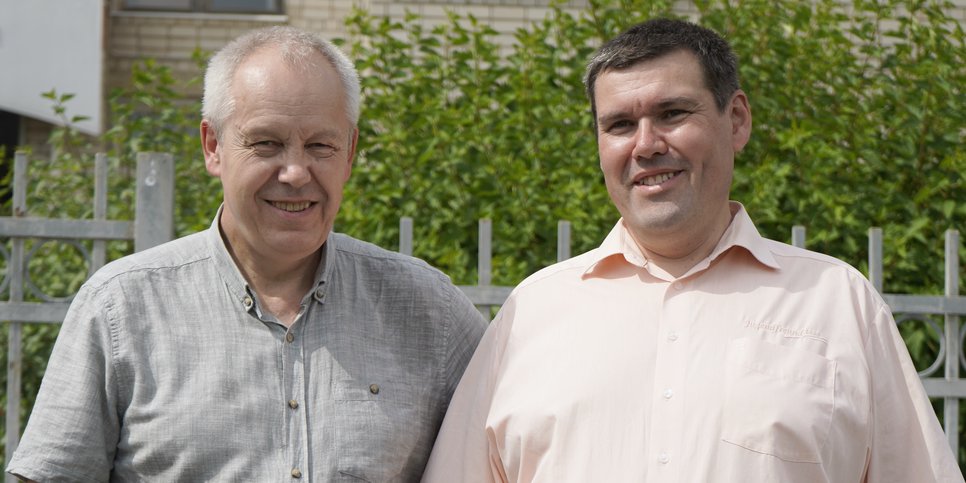Petr Filiznov and Andrey Vyushin near the courthouse, July 2023, Yaroslavl
Petr Filiznov and Andrey Vyushin near the courthouse, July 2023, Yaroslavl
Court of Appeal in Yaroslavl Reduced the Suspended Sentence of Petr Filiznov and Andrey Vyushin by 4 Years
Yaroslavl RegionOn October 30, 2023, the judicial chamber of the Yaroslavl Regional Court commuted the sentences of Petr Filiznov and Andrey Vyushin, giving them a suspended sentence of 2.5 years instead of 6.5 years. For the Kuznetsov couple, the suspended sentence of 2.5 years remained the same.
The reason for commuting the sentence of Filiznov and Vyushin was the fact that the court reclassified the charge from Article 282.2(1) of the RF CrC to Аrticle 282.2(2) of the RF CrC. Now th believers are found guilty of participating in the activity of an extremist organization, and not of organizing such activity. The court considered Bible discussions and prayers, including by videoconference, a crime. The verdict has entered into force, but believers can appeal it in cassation procedure.
The defendants' appeal stated: "In this criminal case, during the trial, the court could see that the actions and statements of the convicted persons ... are exclusively peaceful and do not indicate the presence of hatred or enmity. [...] None of the actions listed in this article (of the Criminal Code) was committed by any of the convicted persons in this criminal case. All witnesses for the prosecution questioned during the trial confirmed this."
Speaking about the expert study, which formed the basis of the charges, the defense stated that "the expert's conclusions only allowed for the identification of the peculiarities of the religion of Jehovah's Witnesses and, based on this, to establish the religious affiliation of the convicted persons." The defense also drew attention to the fact that "the court in effect imposes a ban on practicing faith or religion, which violates basic constitutional and international human rights" and that "the law does not recognize the dissemination and practice, including together with fellow believers, of the religion to which the liquidated religious associations belonged, as a sign of extremism."




